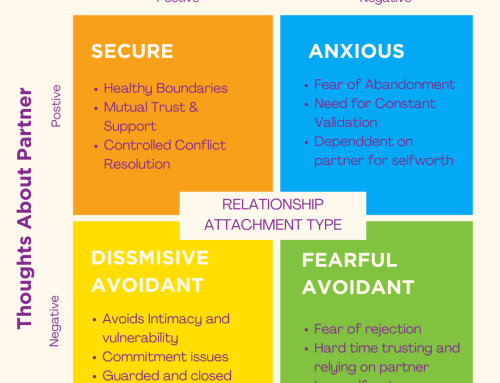





























Keep in Mind to be Kind – A Blog on Bullying
Bullying is a common worldwide issue that can occur in all walks of life. It can
happen to any of us at all ages and is not only present in children and young
people, but adults can also be bullied too during their home, social, and/or
work life.
Thankfully I wouldn’t go to the extent to say I have been bullied but I have
been picked on when I was younger in school, but this may not have been as
extreme as bullying and what others go through daily.
It’s a very common problem that we need to challenge and remove from
society as it’s having drastic effects on mental health in our children, young
people, and some adults too who are too scared to speak up.
By speaking up you could get the much-needed support you need to put an
end to the suffering and beat the bullies!
I do worry about the ongoing issue around bullying as I have two young
children of 3 years and just 2 months. I worry that they may experience this
when they are older, going to school as some children can be cruel.
I feel like I don’t want them to grow up and be out of my site so I can protect
them from these issues. The thought of anyone picking on them really worries
me, I can’t even stand to think about it.
My 3-year-old daughter is quite shy and timid which I believe is down to Covid
and the lockdowns as it was an important part of her life where she didn’t get
to meet new people and experience normal everyday life and I worry she
would be an easy target for bullies as she is quiet and may be too scared to say
anything or stand up for herself. She is fast approaching nursery, so this is a
concern of mine.
We have taught our daughter that bullying or being mean is not an option and
I have to be honest she is a golden child and doesn’t have a bad bone in her
body. She is so caring and helps us all the time, especially with her newborn
little brother. I think this makes it harder when picturing anyone bullying her as
she wouldn’t understand why this is happening as she is so harmless.
Parents, and loved ones have a huge impact on their children from a very
young age, so I feel it’s important to highlight bullying as a serious issue from
an early age and explain how wrong and hurtful it is. Everything we do to try
and neutralise bullying will help.
What is Bullying?
Bullying occurs in school children and young people as well as adults and even
the elderly in some circumstances. It is unwanted, aggressive behaviour that
involves a power imbalance that is repeated over time which may cause
serious, lasting problems for those being bullied and those who are the bullies
too.
Those who bully use their advantages such as – physical strength, potentially
embarrassing knowledge or popularity to control or even harm their victims.
Bullying is often an ongoing issue that is repetitive for a varied period of time.
Bullying can include:
Spreading rumours
Physical harm/abuse
Emotional Abuse
Making Threats
Verbal attacks
Excluding someone from a group and/or activity
There are generally 4 types of bullying which are:
Verbal Bullying:
– Name Calling
– Taunting
– Teasing
– Threats to cause harm
– Inappropriate comments
Social Bullying:
– Leaving someone out on purpose
– Spreading rumours
– Embarrassing others in public
– Telling others not to be friends with someone
Physical Bullying
– Kicking/punching/hitting
– Spitting
– Tripping /pushing
– Taking or breaking someone’s belongings
– Making rude or hurtful gestures
Cyber Bullying
– Online abuse
– Posting rumours on social media
– Send threats online
– Sharing embarrassing photos or information about others online
Bullying can occur at any point in our lives or at any stage of the day. According
to StopBullying.gov it mainly occurs during or after school/working hours.
However, anyone can experience bullying despite their age, gender, ethnicity,
and religious beliefs.
Statistically, most reported bullying happens within the school building but
also happening in workplaces, or social environments i.e., parks/playgrounds,
and on the internet/online.
Bullying can have many effects, and some are long-lasting. These effects can
include:
– Depression
– Anxiety
– Sadness
– Loneliness
– Academic Issues
– Sleeping Difficulties
– Eating pattern changes
– Loss of interest in social activities
– Health complaints
– Alcohol or drug abuse
– Getting into fights
– Early Sexual Activity
– Criminal Convictions
– Abuse towards partners, colleagues, family, and friends
– Suicidal Thoughts
– Self-Harm
– Attempted suicide
–
Statistics Related to Bullying
One out of every five (20.2%) students report being bullied.
A higher percentage of male than female students report
being physically bullied (6% vs. 4%), whereas a higher
percentage of female than male students reported being
the subjects of rumours (18% vs. 9%) and being excluded
from activities on purpose (7% vs. 4%).
41% of students who reported being bullied at school
indicated that they think the bullying would happen again.
A slightly higher portion of female than of male students
report being bullied at school (24% vs. 17%).
46% of bullied students report notifying an adult at school
about the incident.
School-based bullying prevention programs decrease
bullying by up to 25%.
The reasons for being bullied reported most often by
students include physical appearance, race/ethnicity,
gender, disability, religion, and sexual orientation.
One in five (20.9%) 9 to 12 years olds have been
cyberbullied, cyberbullied others, or seen cyberbullying.
49.8% of 9 to 12 years old said they experienced bullying at
school and 14.5% of them shared they experienced bullying
online.
23% of the British workforce has been bullied at work
25% have been made to feel left out in the workplace
12% admitted to struggling to make friends in their place of
work
18 to 24-year-olds had the highest proportion of workers
who admitted to feeling left out at work
1/3 of 18–24-year-olds stated they did not feel part of their
work group
Sadly, 17% of the workforce in Scotland have struggled to
make friends at work, compared to just 6% in the
Southwest. Whereas a huge 29.5% of London workers have
been made to feel left out at work, falling to 20.6% in the
East of England.
Tips to Beat the Bullies
– Rely on those you love and trust – make a list of people you can
trust and love, and to who you feel you can speak. Reach out to all
of them to explain what you are going through. Be completely
honest and persistent, someone will help you. These people can
be family, friends, work colleagues or a schoolteacher.
– Spend more time with people who treat you well – Cut the people
who make you feel bad about yourself out of your life and focus
on those who make you feel good and safe. By doing this you will
see an increase to your happiness and confidence
– Find new hobbies or do more of the things you love – Not only
will you have fun but you can build a new network of friends and
associates and they also may be able to offer support to you.
– Create a safe, online life – This can be fun and helpful if done
appropriately. You could start a blog or social media channel via
YouTube and Instagram. They can also be done anonymously if
you prefer to keep your identity private. Be mindful of this if you
are experiencing cyberbullying of any kind.
– Looking into professional Counselling Support – The AoC can offer
professional counselling and therapy support to anyone in need either
face to face or online via video call meaning we can support you
worldwide.
We can also offer a permanent counselling provision in schools or
organisations whose, children, young people, staff, and any other professionals
need support with issues such as bullying and other mental health difficulties
too.
Having someone else to talk to is often very beneficial. We have a great team
of therapeutic clinicians who use a wide range of modalities such as art
therapy, play therapy, dramatherapy, CBT and traditional talking therapies too.
Our qualified and experienced therapeutic clinicians can offer guidance and
support as well as a private space to speak openly both individually or even in
a group if this is better suited to the client’s needs.
If you would like more information on how we can support you or how we can
work within your school or business setting, do not hesitate to contact us on
01384 211 168 or support@theaoc.org.uk.
Become an AoC Trust Champion!
You could become an AoC Trust Champion! We need your help to continue
providing life-saving therapeutic support to clients in need. You can pledge as
little as just £10.00 per year which will go towards offering free sessions to
clients and patients who may feel tomorrow is just too hard. Other donation
amounts are also welcomed.
Waiting lists for funded therapy are at a high of almost two years! Therapy
changes lives and sometimes saves them too. You can donate at the following
link – https://donorbox.org/the-aoc-trust
Thank you for your continued support and thank you for reading.
References:
https://www.stopbullying.gov/
https://www.pacer.org/
https://www.smeloans.co.uk/blog/bullying-in-the-workplace-statistics-uk/
https://www.teenvogue.com/





